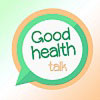What Happens If You’re Vitamin B12 Deficient?
The intake of vitamins is crucial for the normal functioning of our bodies. There are variety of important vitamins we need to consume on a daily basis. However, the vitamin B12 and folic acid are among the most important ones because of their effect on the most vital factors in the human body.
What can the lack of vitamin B12 cause? It can create various complications and very often the most common one is megaloblastic anemia. Due to its complexity and value, this vitamin cannot be replaced with no other for the regular development of nerve and red blood cells.
If there is an evident deficiency of B12 in the process of their formation these cells have irregular form and shape, many of them are immature and not capable of performing their vital function which is transport of oxygen to our organs and tissues.
B12 Deficiency Symptoms
What are the first evident symptoms of vitamin B12 deficiency? Anxiety, problems with concentration, hair and skin diseases like eczema or dermatitis , fatigue and malaise and muscles aches.
Apart from causing a severe degree of anemia, a larger deficit of B12 deficiency can also cause some severe nervous disorders leading to paralysis.
Fatigue, weakness, fast heart pounding and pale face are the first signs of B12 deficiency. This condition is further followed by bloated stomach and loss of appetite as well as diarrhea. When consuming sour foods it may lead to burning sensation of the tongue and losing the sense of taste.
Depressive changes like memory disorders and paresthesia of the legs are some other appearances.
If one suffers from this problem for a longer period of time, some serious conditions like bleeding and brain damage can also be caused. This deficiency can even lead to increasing of the level of homocysteine which raises the risk of coronary diseases and heart attacks.
According to some research , nearly 70 percent of people suffering from Alzheimer’s disease have B12 deficiency so it is crucial not to avoid foods that have abundance of B12 .
The needed daily B12 dosage
B12 chemical structure is a complex one and it is the only vitamin that has cobalt and the essential mineral elements. Vital to the biological activity and for the production of DNA and RNA, this vitamin is indispensable. It also acts in the production of myelin which supplies the protective sheath around the nerves.
This is the needed daily dose of B12 , sorted by age:
- Babies aged one to three years – 0.9 mcg
- Children aged four to eight years- 1.2 mcg
- Children aged nine to thirteen- 1.8 mcg
- Children from fourteen and older- 2.4 mcg
- Pregnant women- 2.6 mcg
- Women who breastfeed – 2.8 mcg
- Adults- 3 mcg
There is nearly 5 mb vitamin B12 in our bodies and about 2 and a half micrograms are lost daily. Clinical deficiency of B12 occurs when the general level of B12 vitamin decreases to nearly 10 percent of normal.
The needed daily dose of this vitamin is usually took by regularly consuming of dairy products, meat and eggs which are rich in B12.
Foods rich in vitamin B12
Animal products from beef and pork are the main sources of B12 since this vitamin is produced by the bacteria in these products. Other good sources are fish and eggs and all foods containing lactic acid.
B12 can also be found in plant foods such as certain types of grains, red beet, seaweed, hazelnut, sesame, soybeans etc. but in much smaller amounts. Sauerkraut and all kinds of pickled vegetables are also a rich source of B12.
The daily recommended B12 dose for adults is not more than 3 mcg. However, there is no reason to panic if you had an overdose since this vitamin doesn’t cause hypervitaminosis. This is because it is water soluble and the body doesn’t produce large stocks. Furthermore, B12 works with the help of calcium since the digestive tract doesn’t absorb it well.
There is no need of taking artificial food supplements if you eat well and consume the above mentioned foods abundant in B12.
The many benefits of B12
This exceptional vitamin is crucial in the process of formation, development and maturation of red blood cells. It is also vital in the process of transforming fats, proteins and carbohydrates into energy.
B12 is excellent in treating variety of nerve disorders, it improves memory and concentration, maintains alertness and has antitumor effects. It is known as the ‘power vitamin’’ due to these characteristics.
It acts in the prevention of anemia, it stimulates growth and causes appetite in children. During menstruation days B12 can calm the menstrual pain. It also decreases levels of homocysteine and amino acid which can have a harmful effect on the walls of arteries and thus leading to a higher risk of heart diseases.
Helicobacter is one of its biggest enemies since the complete absorption of B12 can occur only in a completely healthy stomach.
Prevention of B12 deficiency is very important. If you are diagnosed with B12 and folic acid deficiency, the best way to solve this problem is to change your diet and if it is a more serious deficit, consult your physician to receive the proper medical therapy.
Source: healthandhealthyliving.com





